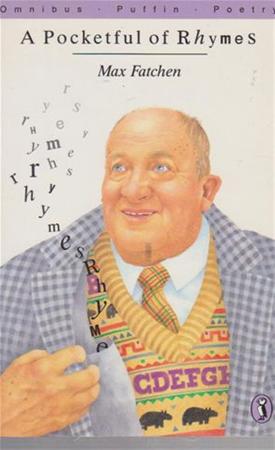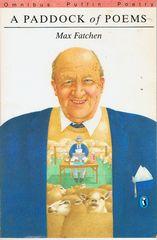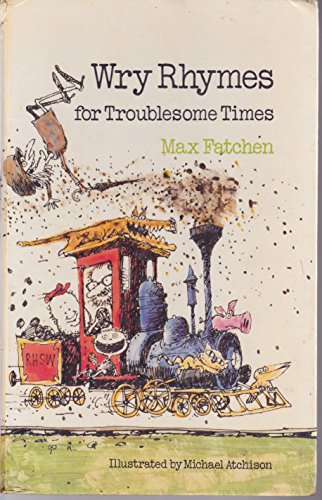

I went rummaging through my poet's suitcase and found a gem of a poem from the late Australian poet, Max Fatchen. Max was born on the Adelaide plains in South Australia in 1920. and grew up on a farm among hayfields and huge Clydesdale horses, which he drove in a plough that made quite crooked furrows (Max's assessment). Max died in 2012.
Max later became a journalist working on Adelaide newspapers and worked throughout Australia and overseas. He most enjoyed writing stories about people. Four decades of writing for children, especially those of primary school age, began in 1966 with 'The River Kings.' He wrote 20 books; his novels appear in seven countries and his poetry throughout the English-speaking world. As well as novels he a collection of short stories and several books of verse for young readers. His verse is frequently included in anthologies. Max had a wry sense of humour and this comes through in a lot of his writing. Since then it has been reprinted numerous times. His children's poems remain popular. I have been a keen collector of his poetry over many years. I am a fan of Fatchen!


The poem I have chosen to share with you today is titled 'Silhouettes' and was part of his children's poetry anthology 'A Paddock of Poems' first published by Omnibus Books in 1987.
Silhouettes
I saw a swan in the evening glide
And then another by its side
Then came a line, a feathered fleet
They sailed when moon and water meet
As, one by one and bird by bird,
The glinting waves they gently stirred.
Across the lake their course they set,
Necks curving in a silhouette
Until I could not hear at all,
The drifting music of their call.
But when it came my time to sleep
I counted swans instead of sheep.
Max Fatchen


Thanks for the introduction, Alan. This book, among others, is available on line at several sites. Sadly only a movie seems available at my library. The poem is wonderful in the language & that sleepy surprise. This is one to memorize! "As, one by one and bird by bird,
ReplyDeleteThe glinting waves they gently stirred."
This comment has been removed by the author.
DeleteAs you state Linda, this is a wonderful poem. it is a personal favourite for me among Max's body of work. The rhyme is so effortless in its delivery.
DeleteI posted in the wrong spot... so deleted and am reposting here..
ReplyDeleteThanks, Alan, for introducing Max Fatchen. I am keeping a copy of "Silhouettes" in my journal because I enjoy its easy flow and peace and I've always liked silhouettes, ever since I made profile silhouettes of my four brothers for my mother when I was a girl. I often find myself taking shadow pictures because they remind me of silhouettes. I googled Fatchen and read "Tide Talks."
It is always wonderful to introduce fellow poets and poetry lovers to a new voice and new words. Your connection to silhouettes is strong Alice, No doubt that has enhanced your connection here.
DeleteSwans seem better to count than sheep. Much more soporific...
ReplyDeleteI love that he counted swans :) Great ending to a lovely poem filled with vivid imagery.
ReplyDeleteAgree Kimberly. The swan ending added a fitting closure to the poem.
DeleteDelightful. I especially enjoyed the last line. I always admire a good ending.
ReplyDeleteGood endings are important in all forms of writing Cathy, so I find myself in fierce agreement with you. I was taught that a poem must begin and end with equally strong words.
DeleteThis is one of those poems that seems so effortless in its rhythm and rhyme. I can see why you're a fan of Fatchen and appreciate the introduction with this poem.
ReplyDeleteA most pertinent observation Molly. The poem's seemingly effortless rhythm and rhyme are its real strength. Glad you liked meeting Max...
Delete